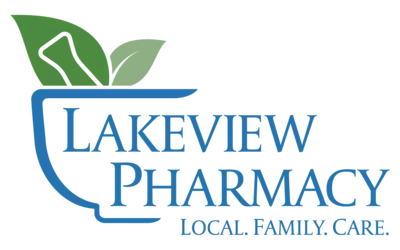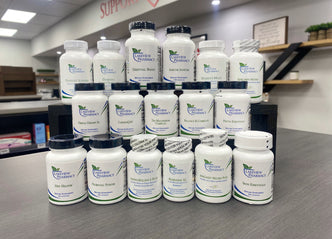Tips, Tactics, and Products to Aid Medicine Adherence
Improving patient compliance with medication remains a concern for healthcare professionals, who see the effects of non-compliance on a regular basis firsthand. Medication compliance, or adherence, refers to the consistency of patients in taking medication on schedule or as prescribed. In a broad sense, compliance also refers to the extent to which a patient’s behavior matches the care plan established by the doctor or medication prescriber.
The cost for not following medication regimens or plans of care for addressing health issues — particularly long-term afflictions — is often steep. And while taking medication correctly and on time may seem like a simple or personal matter, it remains both a complicated and common problem. The National Council on Patient Information and Education refers to the lack of medication compliance as “America’s other drug problem.”
Poor patient compliance with medication can lead to unnecessary progressions of diseases and assorted complications and reduced functional abilities and quality of life. For instance, those with chronic conditions — such as cardiovascular disease — could see severe repercussions. Failing to control blood pressure issues, to continue the example, could lead to further heart disease, stroke, and kidney failure.
Heart.org estimates that as many as three out of four patients don’t take their medications as directed. Poor patient compliance with medication is thought to claim the lives of 125,000 Americans each year and incurs nearly $300 billion a year in additional doctor visits, hospitalizations, and trips to the ER. According to the National Stroke Association, unneeded medication changes or non-compliance leads to more hospital stays that average 4.2 days. The organization estimates that 12 percent of all patients don’t take their medication at all after acquiring a prescription.
Poor patient compliance with medication is a problem. What are some of the reasons for this, and what can be done to improve the rate at which patients adhere to treatment plans? We’ll dive into those next.
The Causes of Non-Compliance
There is a slew of reasons and factors that may impede patients from following treatment plans, both with medications and otherwise. For many, it’s a simple matter of forgetfulness. Busy or hectic schedules can impact the ability to remember to take medication. Some patients feel healthy, or an absence of systems, and may not recognize the need to continue the treatment. Others may have multiple prescriptions to manage and invariably lose track of some of the details. Medical issues, such as dementia, will also impact a patient’s ability to follow through on a medication plan.
Incomplete or inadequate communication from healthcare providers also contributes to patient compliance with medication. Important information about the treatment plan — such as the daily regimen, side effects, or specifics of the ‘why’ about the medication — all contribute to patients feeling unsure or confused about the role the prescriptions or behavioral changes play in their health plan.
Side effects, especially unpleasant or disagreeable ones, are another strong factor in forcing patients off their prescriptions. The tangible effect of taking the medication, for some patients, outweighs the perceived benefit in continuing to take the medication. This is thought to be the most significant factor for those with chronic diseases, particularly if the patient is not alerted to their potential upon beginning treatment.
Costs across the healthcare landscape are a growing challenge for medication compliance and patient care as a whole. Patients simply feel they can’t afford to continue taking the prescription. For example, in one study, researchers found that one in eight patients with atherosclerotic cardiovascular disease didn’t adhere to their medications simply because of the price.
How to Help Enhance Adherence
There are ways healthcare providers can aid patient compliance with medication and most center on improving communication avenues with their patients. For instance, reducing the complexity of a treatment regimen — such as prescribing once-daily dosing instead of multiple doses per day — has been found to increase the likelihood of compliance.
Writing down instructions can also help as many patients don’t retain verbal instructions at a high level. Medication calendars, pill cards, schedules, or charts that specify details about a medication regimen will greatly aid these patients.
Collaborating with patients, answering their questions, and providing tips and best-case practices will also help them feel more invested in their treatment. You can enhance their feelings of agency in their own treatment by engaging on the topics that matter most to them. Are there specific windows during the day that make it easier to take the medication, as opposed to one specific time? Brainstorm with the patient, and work together to craft solutions.
Engage community pharmacists, who are equipped to provide patient educational tools and can help them navigate a complicated system to find lower-cost medication options. Well-trained, professional, local pharmacists can help physicians contact patients who don’t refill prescriptions and aid their customers by finding potential solutions for compliance problems before they evolve into more serious threats.
Lakeview Pharmacy Offers Solutions for Compliance Issues
Proud to serve as a bridge between doctors and patients for more than 45 years, Lakeview Pharmacy has several solutions that can help patient compliance with medication.
If you’re taking several different medications, our MedSync service will help you keep them organized and refilled. MedSync is a free program where we fill all of a patient’s medications at the same time each month. Once filled, our pharmacists will contact the patient to ensure all of the medications are up-to-date and answer any questions they have. We’ll automatically check for refills each week, taking the stress and hassle of checking off your hands.
The MedSync service comes with a review every six months to make sure it is serving your needs. In addition, you’ll be eligible for free delivery of your medications each month through the program. By saving time and money, and eliminating stress, it is Lakeview Pharmacy’s belief MedSync will help you adhere to your treatment plan.
Lakeview Pharmacy also offers a slate of compliance packaging options that will make medication adherence less time-consuming and frustrating. These options include Medicine-On-Time (M-O-T) blister packets, Dispill, and single-dose ‘bingo’ card solutions.
M-O-T blister packs hold up to six medications at one time to increase organization and save space. Each bubble is labeled with the patient’s name, date, time, and drug name. Color-coded calendar cards can be easily separated into individual pill cups and taken on the go.
Dispill is a patented, cold-sealed, multi-dose packaging system, and is perfect for patients living at home. The package contains 28 individual, easy-to-open blisters containing the prescribed medications, each color-coded for reminders about when to take them.
Single-dose bingo cards are ideal for those living in a group setting. Each card contains single doses, or all the medications, that a resident would need to take at a given time. Each ‘cup’ is labeled with the resident’s name, medication, and dosages. Strong enough to resist accidental punctures, the cards are still ‘punchable’ in order to extract the medication.
Lakeview Pharmacy Offers a Complete Suite of Services
Lakeview Pharmacy offers a wide range of pharmacy services, including a wide range of compounding pharmacy services. We’re proud to work with you to craft ideal medicinal treatment options around your particular circumstances.
Contact Lakeview Pharmacy today to learn more about how we can help you improve your patient compliance with medication, and improve the results of your treatment plan.


